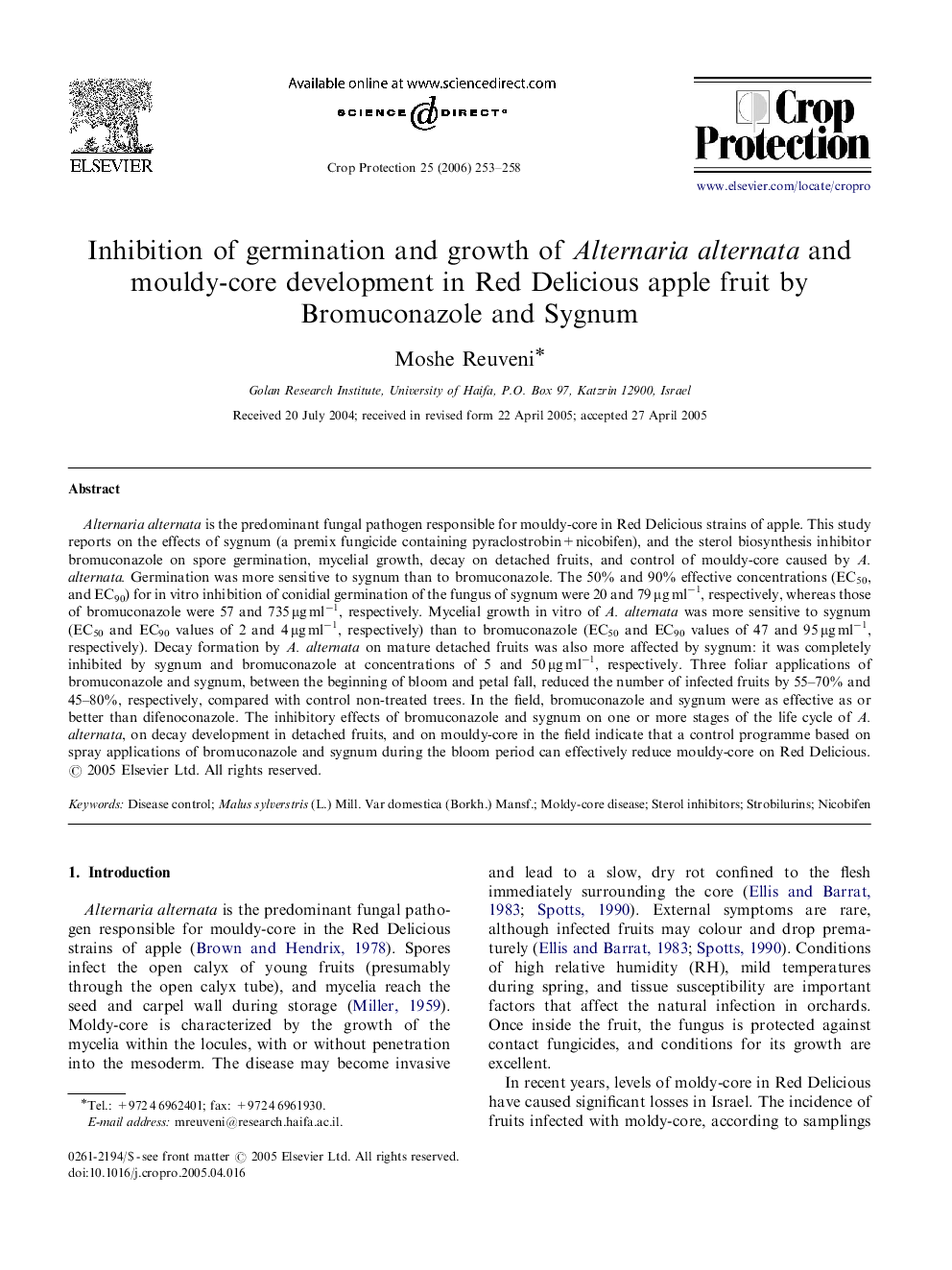| Article ID | Journal | Published Year | Pages | File Type |
|---|---|---|---|---|
| 4507431 | Crop Protection | 2006 | 6 Pages |
Alternaria alternata is the predominant fungal pathogen responsible for mouldy-core in Red Delicious strains of apple. This study reports on the effects of sygnum (a premix fungicide containing pyraclostrobin+nicobifen), and the sterol biosynthesis inhibitor bromuconazole on spore germination, mycelial growth, decay on detached fruits, and control of mouldy-core caused by A. alternata. Germination was more sensitive to sygnum than to bromuconazole. The 50% and 90% effective concentrations (EC50, and EC90) for in vitro inhibition of conidial germination of the fungus of sygnum were 20 and 79 μg ml−1, respectively, whereas those of bromuconazole were 57 and 735 μg ml−1, respectively. Mycelial growth in vitro of A. alternata was more sensitive to sygnum (EC50 and EC90 values of 2 and 4 μg ml−1, respectively) than to bromuconazole (EC50 and EC90 values of 47 and 95 μg ml−1, respectively). Decay formation by A. alternata on mature detached fruits was also more affected by sygnum: it was completely inhibited by sygnum and bromuconazole at concentrations of 5 and 50 μg ml−1, respectively. Three foliar applications of bromuconazole and sygnum, between the beginning of bloom and petal fall, reduced the number of infected fruits by 55–70% and 45–80%, respectively, compared with control non-treated trees. In the field, bromuconazole and sygnum were as effective as or better than difenoconazole. The inhibitory effects of bromuconazole and sygnum on one or more stages of the life cycle of A. alternata, on decay development in detached fruits, and on mouldy-core in the field indicate that a control programme based on spray applications of bromuconazole and sygnum during the bloom period can effectively reduce mouldy-core on Red Delicious.
